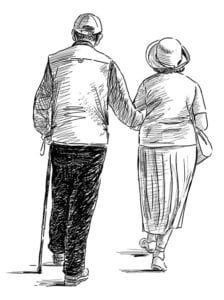It’s a scenario many people can relate to—watching aging family members enter their later years and feeling daunted by a mountain of legal and health care affairs. It’s the kind of situation where an elder law attorney can be an important asset, helping families make decisions about senior care, tax issues, wills and more.
“People often confuse elder law attorneys with estate planning attorneys,” says Brian Quinn of Quinn Estate and Elder Law, who counsels clients in both areas. “Elder law concentrates on handling disability, long-term care, and financial and tax issues so the person’s funds last long enough while he or she is alive. Estate planning attorneys focus on what happens to the client’s wealth and property after death.” Quinn says most people start looking for an elder law attorney when a family member’s health begins to decline or retirement is looming. “Others wait until there’s a major health event like a stroke that brings up the question, ‘How will we pay for care?” he says. “In either case, a good elder law attorney can help families weather the storm.”
Christine A. Alsop of Tucker Allen Estate Planning Attorneys says it’s important to select an adviser who is experienced and offers compassion, moral support and a strong network of related service providers. “I think of clients’ needs in terms of the help I would want my own parents to have,” Alsop says. “We partner with a social worker and financial advisers to make sure the client’s ‘whole picture’ is understood. Many people come in for the first time feeling overwhelmed by the paperwork and cost of care, so it’s helpful to offer a personal touch.”
She cites the recent case of a client with Alzheimer’s disease who was in turmoil because her husband and caretaker had passed away. “The first priority was finding safe placement for her at a facility with good memory care that would make her feel comfortable,” Alsop explains. “Legal work always can be handled later.” Alsop says an elder law attorney also can help families navigate any government and military benefits the client is entitled to, such as Medicaid and Veterans Administration funds. In some cases, a good attorney can identify benefits the client wasn’t even aware of, she says.
Quinn says a good legal adviser also can help draft complex documents such as wills, trusts and powers of attorney, and the earlier the better, he notes. “If you plan ahead in your 50s or 60s, before your health declines, you have more control over what happens in the future,” he says. Working with an elder law attorney to pre-plan for government benefits and others allows the family to avoid probate or guardianship issues later, which creates greater peace of mind. “It’s something people from all walks of life and all financial situations should do,” Quinn advises.
Alsop says it is important to stay properly informed. “This is a very complicated area of law, and many people have misconceptions based on what they’ve heard from family and friends,” she says. “The client always has the right to understand the process before making any decisions.









